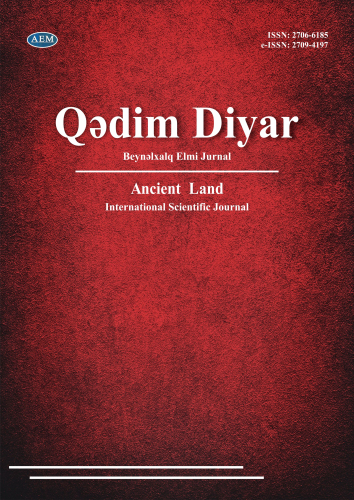DOI: https://doi.org/10.36719/2706-6185/29/79-83
Günel Mustafayeva
Azərbaycan Respublikasının
Ədliyyə Nazirliyinin Ədliyyə Akademiyası
ƏQLİ MÜLKİYYƏT (ƏM) HÜQUQLARINA DAİR KONVENSİYALARIN ƏHƏMİYYƏTİ: HƏMİN KONVENSİYALARDA BƏZİ NÜANSLARA BAXIŞ
Xülasə
Məqalə Əqli Mülkiyyət (ƏM) hüquqlarının təkamülünü tədqiq edir, onların gildiya qaydalarından müasir beynəlxalq konvensiyalara qədər tarixi inkişafını izləyir. O, qlobal iqtisadiyyatda ƏM-in artan əhəmiyyətini vurğulayır, xüsusilə ƏM-in TRIPS Sazişi vasitəsilə Ümumdünya Ticarət Təşkilatının çərçivəsinə daxil edilməsi ilə vurğulanır. Məqalədə Paris və Bern Konvensiyaları da daxil olmaqla əsas beynəlxalq müqavilələr və onların patentlərin, ticarət nişanlarının və müəllif hüquqlarının qorunmasındakı rolu araşdırılır. O, həmçinin bu qanunvericilik bazalarının yaradıcıların və yenilikçilərin dəyişən ehtiyaclarına necə uyğunlaşdığını və qlobal ticarət və texnoloji tərəqqi üçün təsirlərini müzakirə edir. ƏM hüquqlarının davam edən təkamülü yaradıcılığı təşviq etmək və əqli əməyin bəhrələrini qorumaq arasında davamlı balanslaşdırma aktını əks etdirir.
Açar sözlər: Əqli Mülkiyyət hüquqları, Paris və Bern Konvensiyaları, əmtəə nişanları, müəllif hüquqları, patentlərdən istifadənin tənzimləməsi
Gunel Mustafayeva
Academy of Justice of the Ministry of Justice
of Azerbaijan Republic
mustafayevagunel90@gmail.com
The importance of conventions on intellectual property (ip) rights: looking at some
nuances of those conventions
Abstract
The article explores the evolution of Intellectual Property (IP) rights, tracing their historical development from guild rules to modern international conventions. It emphasizes the growing importance of IP in the global economy, particularly highlighted by the inclusion of IP in the World Trade Organization's framework through the TRIPS Agreement. The article examines key international treaties, including the Paris and Bern Conventions, and their role in protecting patents, trademarks, and copyrights. It also discusses how these legal frameworks have adapted to the changing needs of creators and innovators, and the implications for global trade and technological advancement. The ongoing evolution of IP rights reflects a continuous balancing act between encouraging creativity and safeguarding the fruits of intellectual labor.
Keywords: Intellectual Property rights, Paris and Berne Conventions, trademarks, copyright, regulation of use of patents

